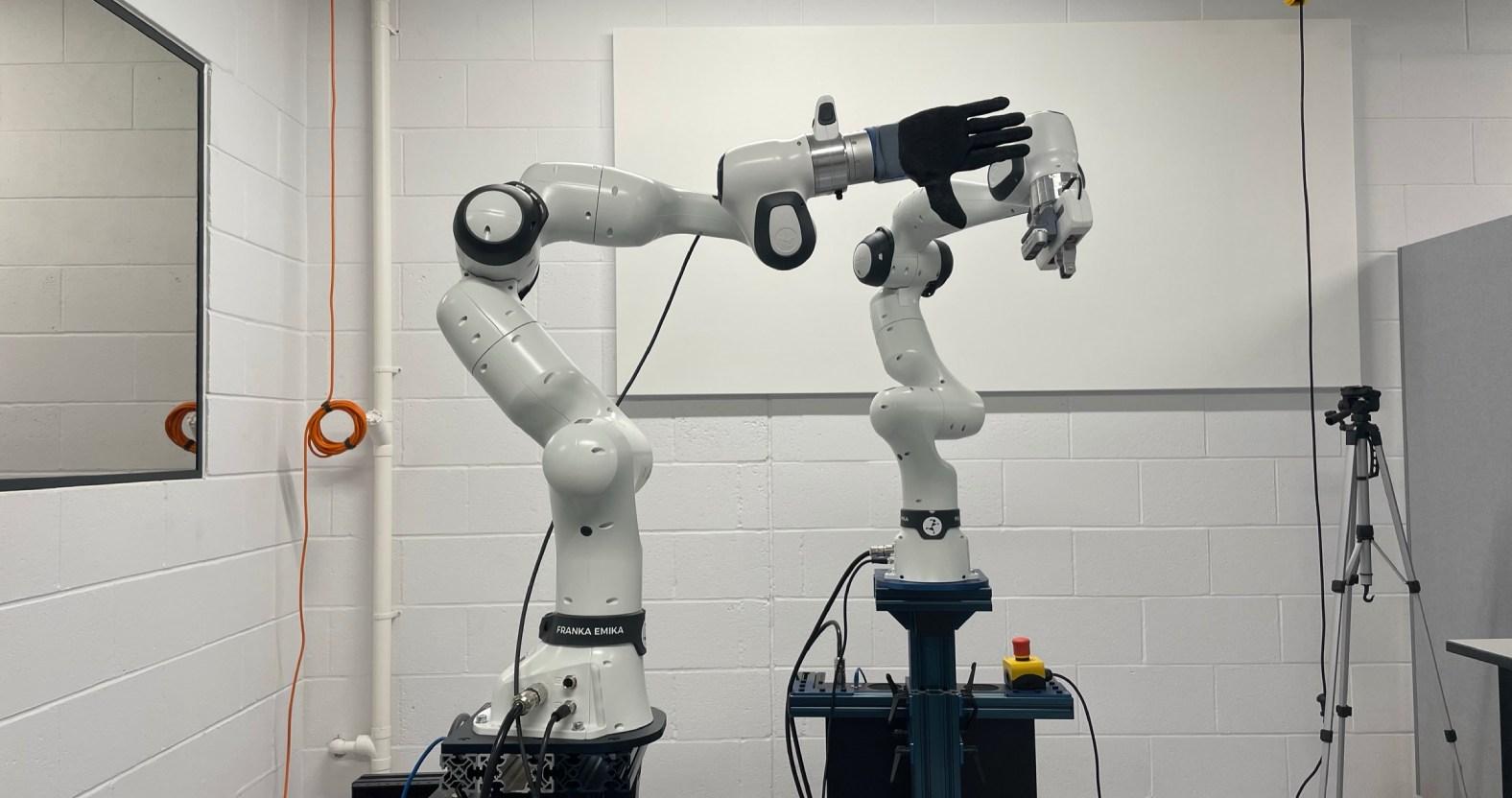17
Jun 2024
Harrogate woman helps scientists create a robot for mammograms

A disabled Harrogate woman has helped a scientist get funding to develop a two-armed robot to help people who have limited mobility get a mammogram.
Jane Hudson, who is paralysed, was turned away from a mammogram after being unable to complete the screening due to her paralysis.
The experience prompted her to raise awareness of the problem and seek a solution.
Now, Dr Jihong Zhu, a robotics researcher at the University of York’s Institute for Safe Autonomy, has received around £80,000 from Cancer Research UK to create a dual robotic arm that can be used to support and help position a person during breast screening.
Dr Zhu was approached by radiologists from York Hospital who were looking for ways to improve accessibility after they were forced to turn away Ms Hudson.
Sadly, just months after being unable to complete the screening, Jane was diagnosed with stage 3 breast cancer in August 2020, which had spread to her lymph nodes.
Jane, 53, who is paralysed from the chest down after being knocked off a bike when she was 32, said:
As well as being unable to walk I have no upper body strength at all, so I wasn’t able to get into the right position, even in my wheelchair. We tried all different positions, but it just wasn’t feasible and the radiographers were unable to get any accurate images.
I had to leave without any alternative options available and I was left with the question of what happens now and a certain amount of panic as I knew I had a higher risk of developing breast cancer because my mum had previously had the disease.
It was staggering to me that such a vital service was so inaccessible. I unintentionally became an advocate for raising awareness of the problem and looking for a solution with the help of my MP and the Spinal Injuries Association.
Following her diagnosis Jane had a mastectomy, but due to a weakened immune system as a result of her spinal injury, she had to decide against having chemotherapy due to the risk it posed to her.
Jane, who runs her own HR business, said:
Of course the question is would this cancer have been detected by a mammogram six months earlier, and if so would it have been early enough to stop it spreading to my lymph nodes?
I will never know the answer, but I want to do what I can to ensure other people don’t face the same fate.
Following on from Jane’s experience, Dr Roisin Bradley, consultant radiologist at York and Scarborough NHS Trust, and director of breast screening for North Yorkshire, looked for a solution to the problem of imaging disabled clients with mammograms.
A research meeting in March 2023 led to an unexpected breakthrough.
Dr Bradley said:
It really stuck with me that we should be able to do more to improve access to mammography. I met Dr Zhu at a research meeting designed to bring clinicians and researchers together in March last year and after seeing the work he was doing I asked if he might have a solution for our problem.
That was the start of the working group and with thanks to the Cancer Research UK funding it really feels like this is the first step forward in ensuring mammograms are accessible to everyone.
The team is exploring the use of robotics and Embodied AI, a type of AI that physically interacts with its environment or people, to assist people with limited or no mobility during a mammography, ensuring equal access for all.
Dr Zhu, who is leading the work and has previously developed assistive dressing robots, said:
This is the first time I’ve worked in the cancer field, and I’m delighted to be able to put my robotics work to such good use and potentially impact the future of diagnosis.
In this case we are developing the robotics with Jane and people with paralysis in mind, but it could also be used for anyone with limited strength.
We will employ a robotics system that consists of two collaborative robots that work to hold the weight of an individual and rotate them into the necessary position. Using force torque sensors and infrared thermal cameras we can track posture during screening. This will be used as feedback for the robot to provide the right support and movement for a correct position.

An example of assitive robotic arms
This research will first develop a pioneering prototype to gather data.
It is then hoped the data can be used to get additional funding for more investigation and analysis, with the ultimate goal to develop a commercially viable breast screening assistance system for use around the world.
Speaking about the work Jane said:
When Dr Bradley contacted me about the potential of this project I was so excited.
It has the potential to change the future of screening and offers a lot of hope for people with paralysis like mine. I am delighted to be part of the project to help develop the robot.
The team hopes the story will inspire people to support Cancer Research UK by signing up to their local Race for Life to help raise funds for more work like this.
Jane added:
I’m so grateful to Cancer Research UK for this funding, which will enable the first stage of work to take place.
While the charity might be better known for developing drugs and treatments we receive when diagnosed with cancer, this shows how it’s also working hard to improve early diagnosis for everyone.
I’d encourage everyone to sign up for Race for Life and back life-saving research.
Dr Zhu said:
Lisa Millett, Cancer Research UK’s spokesperson in North Yorkshire, said:
Sadly nearly 1 in 2 of us will get cancer in our lifetime. Race for Life has the power not only to transform lives, but to save them.
Since it began in 1994, more than 10 million people have taken part in Race for Life.
Race for Life Harrogate
Sunday 21 July
3k, 5k and 10k events
The Stray, Knaresborough Road, Harrogate
To enter, visit raceforlife.org
Subscription is coming on July 1. To find out what to expect click here.

0